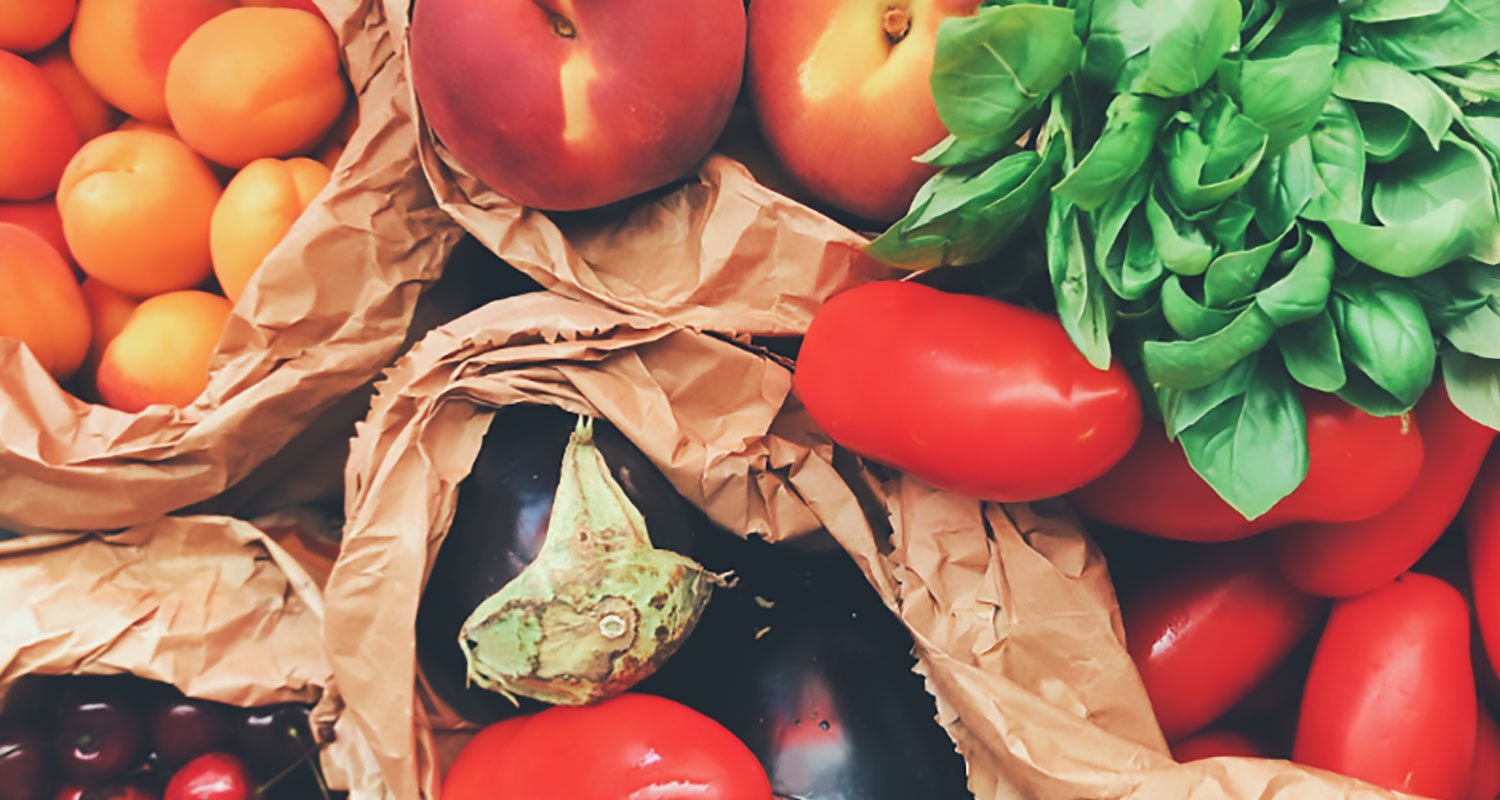
09 Jun June’s Action: Eat Climate-Friendly
Our community and planet thrive when you eat plant-based, grow your own food and shop locally.
As residents of this beautiful coastal town, we have a powerful opportunity — and responsibility — to protect our environment, bolster our local economy, and create a resilient, sustainable community. You can do this easily with these simple yet impactful actions.
The Power of the Food We Eat
Food production and transportation account for roughly 30% of global greenhouse gas (GHG) emissions, making it one of the largest sources of environmental impact. Choosing to center your meals around locally-grown, seasonal produce reduces fossil fuel consumption from transport and supports Maine farmers, strengthening our local economy.
Eat Less Meat
Did you know? Meat-heavy diets are the most damaging to our climate. Producing about two pounds of beef creates nearly 7.2 times more GHG than producing the same amount of chicken or plant-based protein. Animals like cows and sheep produce methane — a super-potent GHG — during digestion. This makes reducing meat consumption one of the most effective ways to lower your individual carbon footprint.
- Cutting meat once a week can lower your annual GHG emissions by about 1.5 to 2.1 tons. Try Meatless Monday or substituting one meal a day with plant foods.
- When you do eat meat, opt for climate-smart meats. Chicken produces far fewer GHGs than beef—about one-seventh of the impact per kilogram
Shop Locally and Seasonally
- Nearly 14% of the energy used in the U.S. food system goes into transportation. Buying local during Maine’s harvest season minimizes this and supports our farmers.
- Supporting our local farms, markets, and shops is critical for a resilient, sustainable community. Buying local reduces food miles—the distance food travels—cutting pollution and emissions. Plus, local food is usually fresher, more nutritious, and comes with less packaging, reducing waste. Supporting local farms also helps sustain Maine’s agricultural heritage and keeps dollars circulating within our community.
Visit Farmer’s Markets
- You’ll find fresh, organic produce, baked goods, flowers, and artisanal products, all while supporting Maine farmers, buying local and fostering community connections. Find out more about Maine Farmer’s Markets in the area..
- Fruits, vegetables, herbs, dairy, and meats at their nutritional peak.
- Your purchases help sustain Maine’s farming families.
- Learn more about the Freeport Farmer’s Market here.
Choose Organic Foods
- Organic farming avoids fossil-fuel-based pesticides and fertilizers, reducing your carbon impact by about 0.9 tons annually
- Organic farming promotes soil health through practices like composting and crop rotation, which help sequester carbon and reduce greenhouse gases in the atmosphere.
Grow Your Own Food at Home
There’s no greater joy than cultivating your own fresh produce. Growing your own food reduces your environmental impact, saves money, and provides access to nutrient-rich, chemical-free food. Whether you have a large yard or just a small balcony, you can start simple with containers or raised beds.
Why Grow Your Own?
- Lower your impact: Growing your own reduces emissions from transport, packaging, and waste.
- Save money: Homegrown produce is often more affordable than store-bought and fresher too.
- Eat healthier: Harvesting directly from your garden means fewer chemicals and more nutrients.
- Build resilience: Growing your own food creates a more secure and reliable food supply, helping our community withstand disruptions in the global food system and climate-related challenges.
Getting Started:
- Choose easy-to-grow, native, and hardy plants suited for Maine’s climate, such as kale, lettuce, radishes, herbs like thyme and parsley, and tomatoes.
- Start small with containers or raised beds to make gardening manageable and accessible.
- Use organic methods like composting kitchen scraps, mulching, and crop rotation to improve soil health naturally.
- Water your plants early in the morning or late in the evening to reduce evaporation and conserve water.
- Plant flowers like bee balm, sunflowers, and lavender nearby your vegetables to attract pollinators such as bees and butterflies. These beneficial insects are essential for a healthy, productive garden.
Additional Resources:
- Maine Organic Farmers and Gardeners Association (MOFGA) offers workshops, seed exchanges, and advice specific to Maine’s climate.
- Seed Savers Exchange for heirloom seeds and varieties suited to our region.
- Local extension offices, such as the University of Maine Cooperative Extension, provide free gardening guides, classes, and personalized advice.
Why Eating Climate-Friendly Matters
Eating climate-friendly food significantly reduces your environmental impact by minimizing greenhouse gas emissions and other negative consequences of food production. Shifting towards plant-based diets, supporting local and seasonal foods, and making small swaps in your diet can collectively make a substantial difference in combating climate change


